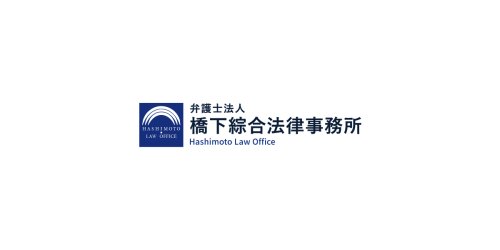Best Estate Planning Lawyers in Osaka
Share your needs with us, get contacted by law firms.
Free. Takes 2 min.
List of the best lawyers in Osaka, Japan
About Estate Planning Law in Osaka, Japan
Estate planning in Osaka, Japan is a crucial process that involves organizing and managing your assets with the aim of ensuring their smooth transfer to your chosen beneficiaries after you pass away. This includes creating wills, trusts, advance directives, and navigating inheritance tax regulations. Japanese law governs how assets are distributed, but it also allows individuals certain freedoms to dictate specific wishes, provided they do not conflict with statutory rules regarding family member shares. In Osaka, as elsewhere in Japan, estate planning is used to prevent disputes among heirs, minimize taxes, and make certain your wishes are carried out.
Why You May Need a Lawyer
Estate planning can be complex, especially if you have a range of assets, blended family structures, non-Japanese heirs, or business holdings. You may need a lawyer for several reasons:
- Drafting a legally valid will that reflects your wishes and complies with Japanese law
- Understanding and minimizing inheritance taxes, which are assessed on each individual heir in Japan
- Setting up trusts or other structures for asset protection or privacy
- Resolving disputes among family members or clarifying complicated inheritance situations
- Managing cross-border estate issues involving assets or heirs outside Japan
- Translating and notarizing legal documents, especially if you are a foreign resident
- Ensuring compliance with all procedural requirements, such as proper witnesses or registration
Local Laws Overview
In Osaka, estate planning follows national Japanese law, most notably the Civil Code and the Inheritance Tax Act. Key highlights include:
- Statutory heirs and forced heirship rules: The law guarantees a minimum share (known as "reserved portion" or "yuibun") for certain relatives, including spouses and children, regardless of your will.
- Inheritance tax: Japan applies inheritance tax to the recipient of assets, not the estate. Tax rates vary by relationship and value inherited, with relatively low exemptions for non-spouse heirs.
- Form of will: Japanese law recognizes handwritten (holographic), notarized, and sealed wills, each with specific formalities. Notarized wills are the most secure and least likely to be challenged.
- Probate process: Assets may be frozen until the estate is divided, and family agreement or court proceedings may be required for asset distribution.
- Foreign nationals: Non-Japanese citizens with assets or heirs in Japan are subject to Japanese laws for those assets. Cross-border issues may require special attention.
Frequently Asked Questions
Is a will necessary in Japan, or will my assets be divided by law?
A will is not strictly necessary, as Japanese inheritance law spells out asset distribution to heirs. However, having a will allows you to specify asset division and help prevent family conflicts or delays.
What happens if I do not leave a will?
If you die intestate (without a will), your assets are divided according to strict family order and statutory shares, as defined by Japan's Civil Code. Spouses, children, and sometimes parents or siblings may become heirs.
Can I completely disinherit a close family member, like a spouse or child?
No, Japanese law requires certain relatives to receive their "reserved portion" or yuibun, which cannot be taken away through a will except in very rare cases.
How is inheritance tax assessed in Japan?
Inheritance tax applies to the assets each heir receives, not the total estate. Tax rates are progressive and apply to even modest inheritances for non-spouse heirs, but spouses and children get higher exemptions.
Are foreign assets or overseas heirs subject to Japanese inheritance procedures?
Yes, Japanese inheritance tax can apply to worldwide assets if the decedent or heirs are Japanese residents. Foreign assets can complicate the process, so legal advice is usually essential.
Can foreign nationals make a will in Japan?
Yes, foreign nationals can make wills that apply to their Japanese assets. Legal advice is recommended to coordinate with the laws of your home country.
What is involved in making a valid will in Osaka?
A will must meet formal requirements, such as being handwritten or notarized, signed, dated, and properly witnessed. Errors in form can cause a will to be invalid.
How can family disputes about inheritance be avoided?
Clear estate planning with legal advice, open family discussions, and notarized wills can reduce disputes. Mediation and court procedures are available if necessary.
What is a trust, and is it common in Japan?
Trusts are less common than in some Western countries but can be established for specific purposes, such as caring for disabled heirs or business succession. Specialist legal advice is necessary.
How long does the inheritance process take?
Simple estates with family agreement can be divided within a few months. More complex cases or disputes may take a year or more, especially if court involvement is required.
Additional Resources
Those in need of information or assistance with estate planning in Osaka may find the following useful:
- Osaka Bar Association (Osaka Bengoshi Kai) - for lawyer referrals and legal information
- Japan Federation of Bar Associations - for general guidance on legal services and regulations
- Osaka Legal Affairs Bureau - for notary public services, will registration, and inheritance procedures
- National Tax Agency (NTA) - for detailed guidance on inheritance tax
- City and ward offices in Osaka - for family registry and inheritance notifications
Next Steps
If you believe you need help with estate planning in Osaka, consider the following steps:
- Make a list of your assets, heirs, and any special circumstances or wishes
- Consult with a qualified lawyer who specializes in estate planning and is familiar with Osaka procedures
- Prepare necessary documentation, such as family registry certificates and property records
- Discuss your goals and concerns openly with your legal professional
- If you already have a will or trust from another country, have it reviewed for compatibility with Japanese law
- Stay informed of changes in tax laws or inheritance regulations that may affect your situation
Taking early action can ensure your assets are transferred smoothly, your tax burden is minimized, and your family is spared unnecessary complications.
Lawzana helps you find the best lawyers and law firms in Osaka through a curated and pre-screened list of qualified legal professionals. Our platform offers rankings and detailed profiles of attorneys and law firms, allowing you to compare based on practice areas, including Estate Planning, experience, and client feedback.
Each profile includes a description of the firm's areas of practice, client reviews, team members and partners, year of establishment, spoken languages, office locations, contact information, social media presence, and any published articles or resources. Most firms on our platform speak English and are experienced in both local and international legal matters.
Get a quote from top-rated law firms in Osaka, Japan — quickly, securely, and without unnecessary hassle.
Disclaimer:
The information provided on this page is for general informational purposes only and does not constitute legal advice. While we strive to ensure the accuracy and relevance of the content, legal information may change over time, and interpretations of the law can vary. You should always consult with a qualified legal professional for advice specific to your situation.
We disclaim all liability for actions taken or not taken based on the content of this page. If you believe any information is incorrect or outdated, please contact us, and we will review and update it where appropriate.











